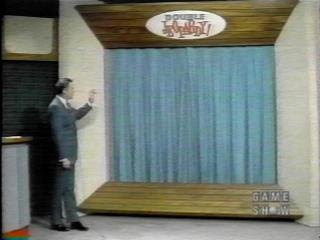Let's have a look at today's board.... and yes, we are using the old school board! :)

Dollar values are doubled for this round, but it doesn't matter since we're not playing for real money! :) So let's get started!
CCNA Certification And CCENT Certification:
The category is WANs:
$ 20 - It's the default encapsulation for a Serial interface
$ 40 - This is the net result to the physical and logical point-to-point connections when encap types don't match
$ 60 - This protocol is considered the "manager" of a PPP connection
$ 80 - These are the three default Frame Relay LMI types
$ 100 - You forgot to do this if you see a dynamic frame mapping to "0.0.0.0"
CCNA Security Certification / CCNP ISCW Exam:
The category is .... the IOS Firewall Set:
$20 - In a typical firewall-protected network, you have three logical areas - "inside", "outside", and this
$40 - To create the answer to the $20 question with SDM, you must use this
$60 - These three commands must be on a router before SDM can be used
$80 - These three "V"s must be considered when configuring firewalls
$100 - It's this command that defines the time allowed for a TCP handshake to reach the Established stage
CCNP Certification / BSCI Exam:
The subject is... BGP.
$40 - In the neighbor command, these are the two required numeric values
$60 - They're the two well-known discretionary BGP attributes
$80 - The BGP attribute Local Preference uses this for a default setting
$100 - Assuming Cisco routers are in use, this is the 4th tiebreaker in the BGP best-path selection process
CCNP Certification / BCMSN Exam:
The subject is ... Multilayer Switching.
$40 - Other terms for this include "Layer 3 engine" and "Layer 3 forwarding engine"
$60 - Defined in RFC 1256, IRDP routers and hosts send these two kinds of packets to facilitate the router redundancy process
$80 - It's the well-known virtual MAC address used by the protocol defined by RFC 2281
$100 - Of routed ports, SVIs, and Layer 3 port-channels, these are the interface types that support HSRP on a multilayer switch
The subject is.... queuing. (Or queueing, depending on which book you're reading!)
$20 - It's the default queuing scheme for interfaces running at over E1 speed
$40 - The default capacity of the default queue used in Priority Queuing
$60 - Three of the four criteria commonly used to define a WFQ traffic flow
$80 - The maximum number of queues available in CBWFQ
$100 - These two common CBWFQ commands can't be used in the same policy map
Look for the questions right here on Thursday!
Also, while you're here , be sure to read today and yesterday's blog posts for links to new YouTube videos. I'll be hosting those on the website soon as well!
To your success,
Chris Bryant
CCIE #12933
http://www.thebryantadvantage.com/
Comments